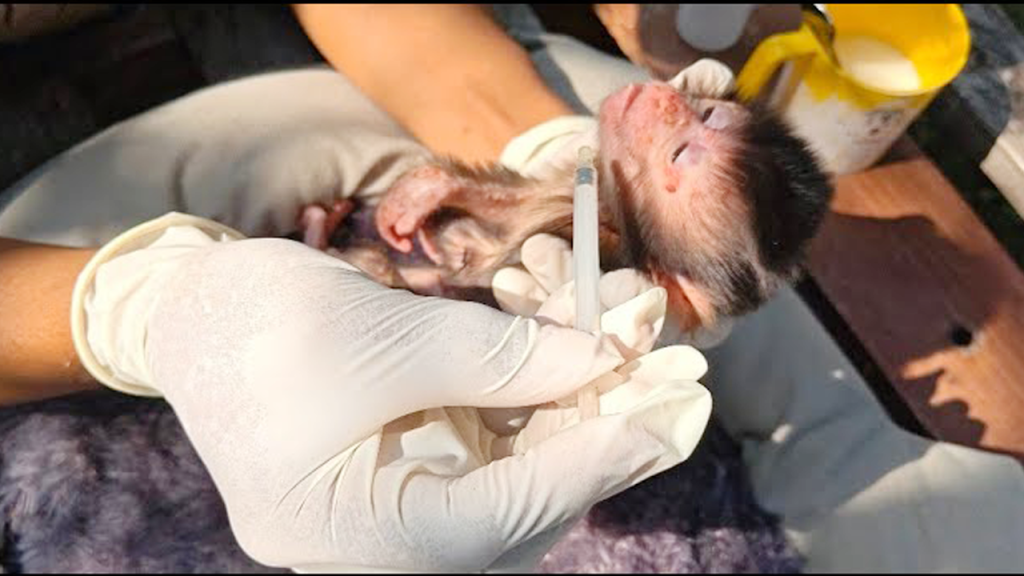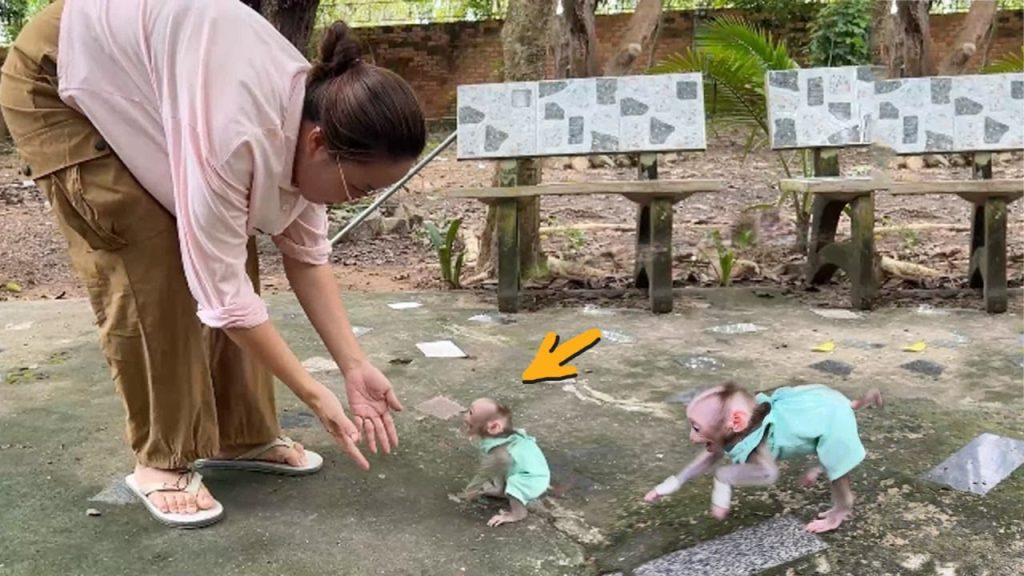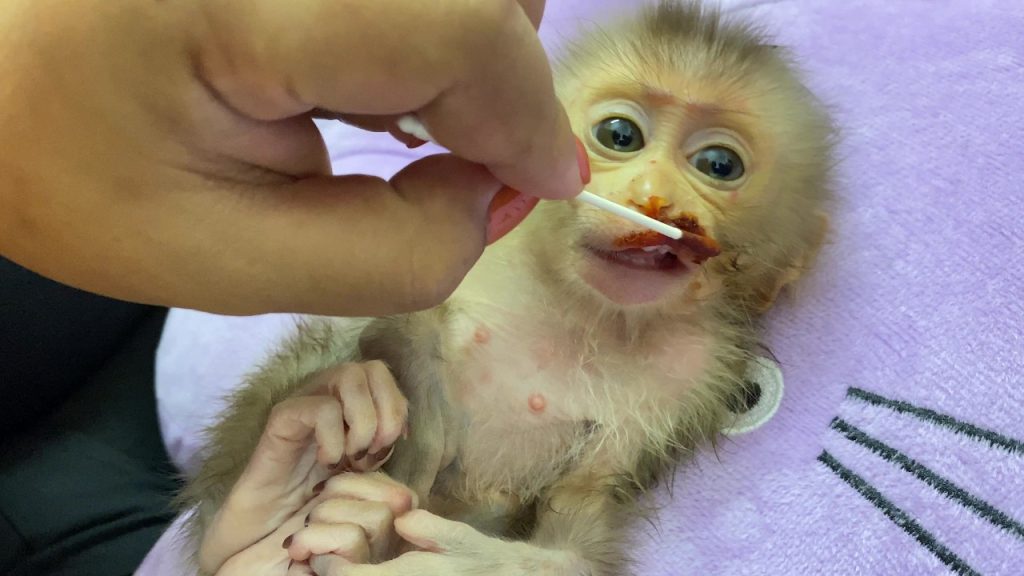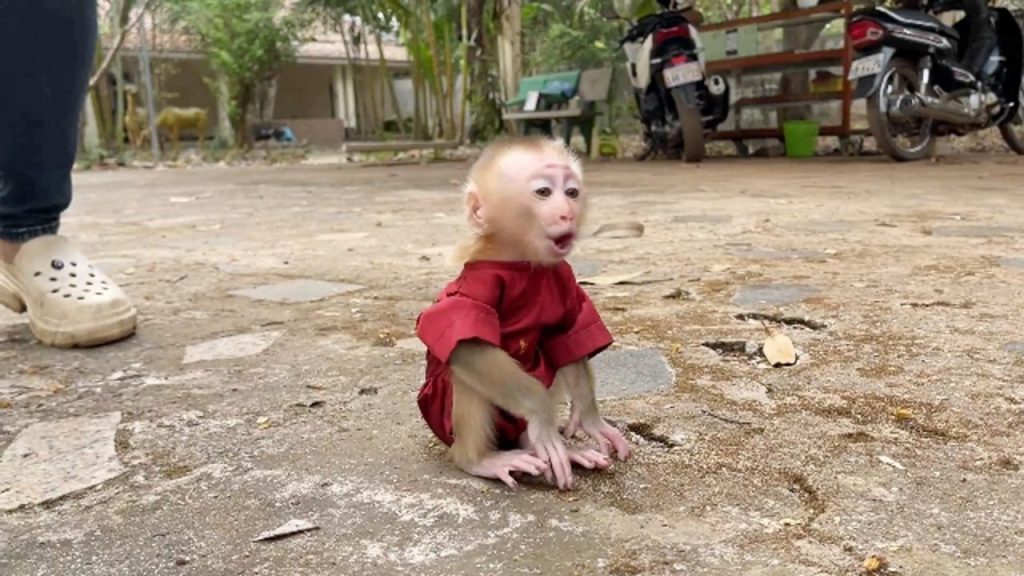
When rescuers first found tiny Rubby, she was barely breathing. Her frail body was curled up against a pile of leaves, trembling in weakness. The newborn monkey had been left all alone, her mother nowhere to be found. Every breath was a battle, every faint sound a cry for help.
Wrapped gently in a soft towel, Rubby was rushed to safety. Her little chest rose and fell so slowly that everyone watching held their breath too, praying she would keep fighting. The rescuers knew she was in a critical condition — her body cold, her heartbeat faint, her strength fading fast. Still, they refused to give up.
They prepared a small bottle of warm milk, feeding her drop by drop. At first, she could barely swallow, but then—just the smallest movement—she tried. That tiny effort was everything. It was her way of saying, “I’m still here. I want to live.”
Hours turned into days, and every moment was a test of hope. Rubby’s rescuer stayed by her side day and night, gently rubbing her back, whispering soft words to remind her she was not alone anymore. Slowly, she began to respond. Her breathing grew steadier. Her tiny hands twitched, reaching for warmth.
By the 11th day, Rubby managed to open her eyes — weak, but shining with the quiet strength of survival. She wasn’t healed yet, but her spirit had returned. That fragile little body carried a heart that refused to give up.
In that moment, her rescuer smiled through tears. Rubby, once abandoned and fading, was now surrounded by love. And sometimes, that love is the medicine that saves the smallest, weakest lives.


